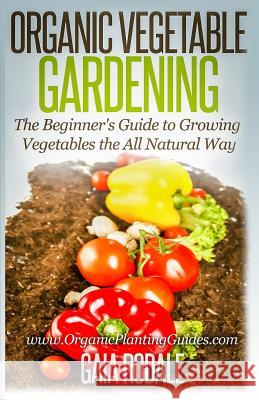Organic Vegetable Gardening: The Beginners Guide to Growing Vegetables the All Natural Way » książka
Organic Vegetable Gardening: The Beginners Guide to Growing Vegetables the All Natural Way
ISBN-13: 9781500366056 / Angielski / Miękka / 2014 / 48 str.
Organic gardening is the wave of the future that takes a page from the past. It involves going back to our roots and gardening the way our grandparents and great-grandparents did. It means reclaiming our agricultural heritage from the big companies and bringing it back to basics. The key to succeeding at organic gardening right from the start is taking the time to plan out how the different pieces of your garden system will work together to produce optimal results. Each garden is only as strong as the weakest part of its system. This means that taking the time to test and amend the soil matters as much as picking the right plants or using only organically-safe pesticides and herbicides. This guide provides all the information you need to get on board with organic gardening practices and plan the organic vegetable garden you have been dreaming about. It provides a concise look at the essential elements of organic gardening, walks you through the process of planning your own organic vegetable garden, and encourages you to embrace organic-friendly concepts like companion planting and the need for beneficial insects. You will learn: Why compost is important and how it helps organic gardens, plus how to make your own with the proper ratios How to select the best plants for your family and your garden space How to use companion planting, and why you really want to Why you need to attract beneficial insects and how to do it Why crop rotation is important and how to set your garden up on a 4 year plan to ensure optimal productivity How to make your own organic-safe herbicide and pesticide, no more spending a ton of money at the garden shop for this one How to plan out your garden to meet your needs, and the needs of the plants By the end of the book you will have a solid understanding of what organic gardening is, why people do it, and how gardeners use specific techniques and methods to get stellar results without synthetic chemicals. You will know how to compost your kitchen and yard scraps, figure out which plants suit your climate, and know how to group plants together by the benefits they provide to each other."
Zawartość książki może nie spełniać oczekiwań – reklamacje nie obejmują treści, która mogła nie być redakcyjnie ani merytorycznie opracowana.











